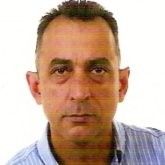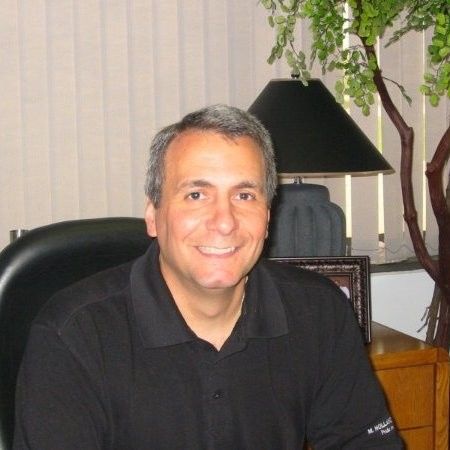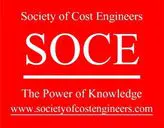Meet Our Founders

Gerald (Jerry) Collins, Founder & Owner
Jerry is a 1987 graduate of the University of Dayton with a Bachelor’s Degree in Mechanical Engineering. He took a job with General Motors Inland Division as a Seat Systems Engineer in Detroit, Michigan. During this time, Jerry learned about metal stamping, foam molding, fabric sewing, and component assembly. On top of the engineering, he also started getting involved in understanding the cost and price battles within a large company.
After cutting his teeth on seats for three years, Jerry wanted to expand his knowledge of the automobile, so he requested a transfer to the Delco Products Division of General Motors as a Suspension Design Engineer.
In this role, Jerry was responsible for the design, validation, and launch of numerous shock absorbers and strut applications. During this time, he expanded his knowledge by working closely with and in manufacturing engineering.
He helped specify and design assembly equipment, design and install assembly lines and learned a great deal about lean. After spending several years working on suspensions, Jerry once again requested a change.
This new phase in his career took him into International Operations as a Program Manager for Delphi. The main project Jerry worked on was a greenfield facility in Brazil.
This facility was designed and built to ship front and rear suspension assemblies JIT to a brand-new General Motors facility. In this role, he was responsible for maintaining the business case. This is where Jerry first developed his understanding of costing. Delphi decided to change its purchasing approach to that often used by the likes of Toyota and Honda.
This approach was called Cost Management. After completing his Brazil project, Jerry was recruited into the Cost Management Department to help start the group. This group was mostly made up of engineers who had both program management and financial backgrounds.
The idea was that these engineers would develop programs that would allow buyers to determine what it would cost to produce a component or assembly prior to the buyer sitting at the negotiation table. In this role, Jerry created numerous cost category models and negotiated various deals. As a cost leader, one of my main objectives was to travel the world teaching the theory and mechanics of cost management to the entire Delphi organization.
One of his side assignments was to investigate and stay up to date on the available technology available in this area. He was trained in SEER, Bothroyd and Dewhurst, and Costimator, and he researched numerous others like Apriori. With the downturn of the automotive industry in full swing, Jerry had the option to stay in this department but move back to Detroit or stay in Dayton, Ohio, and take a new assignment with a Delphi spinoff, BWI, as a Product Line Purchasing Lead. He chose to go with BWI, and in the assignment, Jerry was responsible for negotiating and contracting all the electrical components and assemblies for the brake division.
This included everything from the resistors through ICs, circuit boards, and housings to the final assembly. Although Jerry enjoyed the challenge of negotiating multi-million dollar deals internationally, he felt he was missing his calling to spread the Cost Engineer message he so enjoyed earlier in his career. So when a large medical company asked if he would be interested in starting up a Cost Engineering department, he jumped at the opportunity.
With this new company and position, Jerry has been responsible for creating the training materials, setting policy, and directing. Once again, he researched the available software and was trained on various offerings. Jerry has become an active member of a Cost Modeling Users group. This group attempts to meet quarterly and has representation from Automotive, Medical, Agriculture, and other industries. During these meetings, it has become obvious that there needs to be a governing body for this discipline.
The governing body would set definitions, expectations, and minimum requirements for certification and titling. This body could be a place for job seekers as well as job postings. This body would reach out to both industry and academia for support and guidance as well as offering both the same. With this void in mind, Jerry decided to create the Society of Cost Engineers. So the story begins…….

Leo Hernandez, Co-Founder
Leo Hernandez is a Spanish Mechanical Engineer with a Post-Bac. Degree from the U. of Florida joined GM Components plant in Spain as a manufacturing engineer and shift supervisor in 1989. The company name changed to Delphi, then became Product Engineer, Program Manager, and then Lean Implementation Leader for key suppliers.
All the time, he struggled to determine the component's cost, first during product-development phases to establish what could be the optimum selling price while being profitable and competitive, and then while he was performing different supplier Lean workshops to be able to determine what was the cost impact of all the improvements and process modifications that were being proposed.
How he had wished to have today’s cost tools and knowledge at those moments!! In 2007, he joined the Delphi Cost Management team, the first European position in the team. Gerry was already there, and that’s how they got to know each other.
Leo’s main job became to introduce Cost Management culture into European operations, and in order to do so successfully, results had to be solid, well understood, easy to defend, and easy to explain to buyers and to product engineers. The reason for the success of this task was the right background in manufacturing and the understanding of many different suppliers’ processes.
A reliable cost model or process cost calculation can’t be done without proper knowledge of those processes; there are tools out there that will give you a first cost estimation for relatively simple processes like castings, forgings, or plastic injection, but when processes get complicated, a good understanding of the processes involved is key to determine the right costs accurately, because there are many factors that will determine the optimum manufacturing process among the different ones available: yearly volumes, tolerances, plant geographical location, etc. And that’s how the job requests in Europe started to get exponential. All new parts to be purchased required a cost model that could be compared later to supplier quotes and processes.
Everyone worldwide knows, trusts, and respects our cost models. Leo was included as an active member of the Sourcing Table by proposing suppliers that could have a competitive advantage depending on the right processes required for each particular part. One of the most difficult challenges was precisely approaching the suppliers and claiming an “open-book” policy.
Leo tried to explain that there was no reason to hide information, that we wanted both sides to be profitable, and that a trusting relationship can only be achieved by sharing information, of course, being very cautious and sensitive in order not to share know-how from different suppliers.
Once this trust was established, he was able to share the new products being developed, decide together on the best processes to make them, and establish a cost for each step of the production in agreement with the supplier, thus knowing where to focus in order to make the best cost-effective decisions. This is the key of cost management.
Today, Leo is a cost engineer with a main focus on machined parts, powder metal parts, castings, forgings, stampings, and assembly processes. He still works with different and new suppliers with this open-book mentality and is constantly improving his cost models as technology changes. The desire to create this Society of Cost Engineers comes from the need to standardize certain concepts and calculations and to expand the should-cost and transparency mentality.

Jeff Ghilani, Co-Founder
Jeff is a 1987 graduate of the University of Dayton with a Bachelor of Chemical Engineering degree. Although always technical in nature, he became interested in business and sales. Upon graduation, Jeff began his career as a Sales Engineer for a manufacturer’s representative company selling a range of industrial equipment, including automated valves, filtration devices, and heat trace.
Over the next 12 years, Jeff expanded his sales experience and skills working as a sales representative for companies such as Rosemount Instruments (Emerson) and ABB. Selling technical products and solutions to all levels of customers in a wide range of industrial markets gave Jeff the training and knowledge needed to build trusting relationships, learn the needs of the customer, create win-win outcomes, and sell value.
In 2000, Jeff was hired as the Sales Manager for the Engineered Products Division of a brush manufacturing company, beginning the next phase of his career in sales management and manufacturing. After building a sales team and creating sales processes, Jeff became division General Manager.
It is in this role that he began to learn the nuances of manufacturing and the very important impact of product cost and product margin on the bottom line. Jeff remained in the brush manufacturing and sales business for 16 years, working his way up to VP of Sales and Marketing.
After leaving the brush industry, Jeff became the sales and marketing leader and then general manager for a manufacturer of calibration and measurement equipment. This company merged with a larger sister company that manufactures components and devices for the compressed gas industry. He currently holds the role of VP of Sales and Marketing, leading a team that works closely with customers in the industrial and medical markets.
In his current position, Jeff is also responsible for developing strategic initiatives for new product development, including product cost, market pricing, and customer value proposition.
